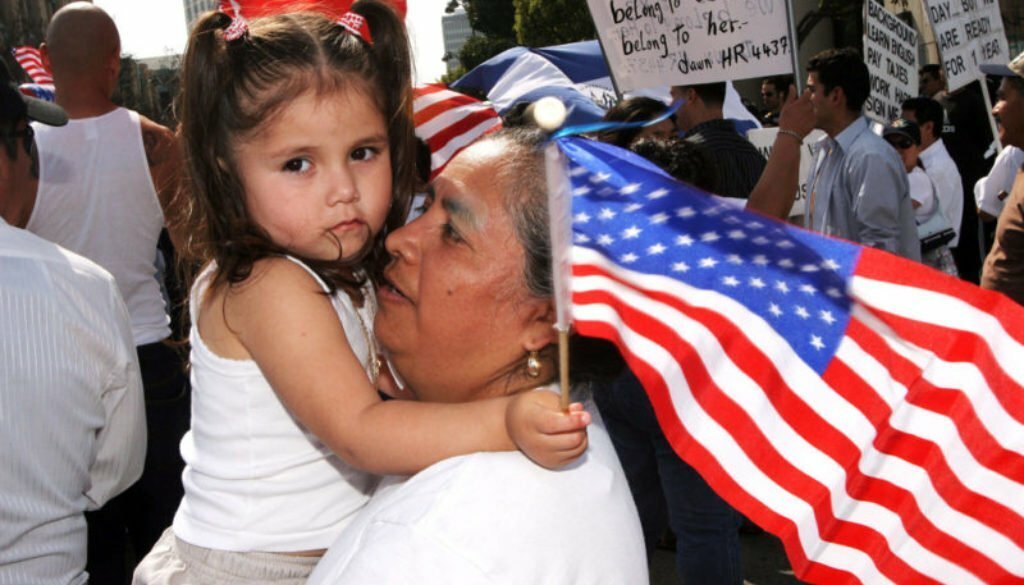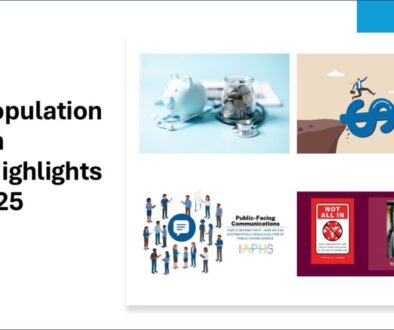Borders of Belonging: Mixed-Status Families and the Impacts of Family Separation on Population Health
Heide CastanedaElvia is a grandmother caring for her four-year-old granddaughter after her son was deported. He had been on his way to work when he was pulled over at a traffic checkpoint and asked about his documentation. Elvia says, “We told her he had gone away to work, but now he has been gone for a month. She would see his pictures around the house and would talk to them: ‘¿Papá?’ But no, we didn’t tell her anything, just that he was away working.”
In 2018, people were shocked to learn about a new Trump administration policy that separated children from parents or guardians at the border. Medical professional organizations swiftly joined the debate, condemning the policy based on the known short- and long-term health impacts on children and parents alike. However, while the policy at the southern border was officially ended, immigration authorities have continued to break up families living in the United States through raids in the workplaces of immigrant parents, and/or simply removing children from their families for reasons as minor as a parent having a traffic citation for driving without a license.
The health effects of living in households that include individuals who may be “deportable” plays a largely under-investigated role in health disparities across the United States. This area demands our attention.
My recent book Borders of Belonging explores the everyday and long-term impact of immigration policies and practices not only on undocumented migrants, but also on their US citizen family members. A demographic shift is occurring: never before have so many citizen children in the United States grown up with an undocumented family member as today. Nationwide, at least 16.7 million people are part of mixed-status families, living with at least one undocumented family member in the same household. Most children in mixed-status families –an estimated 5.9 million – are U.S. citizens, comprising three-quarters of all children of undocumented immigrants. Put another way, children of unauthorized immigrant parents comprise 7.25% of all children in the U.S.
…children of unauthorized immigrant parents comprise 7.25% of all children in the U.S.
The reasons for this sharp increase in mixed-status families over the past two decades is itself the result of policy decisions. Beginning in the 1990s, this circular movement between the U.S and migrant-sending countries – most notably, Mexico – was made more difficult, and many people stopped returning home and instead opted to either bring relatives over or start their families in the US. In addition, a visa backlog has made entering the country legally a daunting, almost impossible, process. For Mexicans, obtaining a family-sponsored green card can take up to 22 years, since that country is considered “oversubscribed” because it has exceeded its allocation of visas. The U.S. Citizenship and Immigration Service is currently processing applications that were submitted in 1997 for some categories. With this in mind, it is perhaps no wonder even those who are eligible for a visa may forfeit the wait and attempt entry in another manner to reunite with family. A second trend has been the decline in opportunities to legalize one’s legal status. In prior decades, the overall experience of being undocumented was shorter and affected fewer people. By the mid-1990s, however, policy changes greatly restricted the ability to legalize status for those who are undocumented.
Understanding health disparities in mixed-status families requires a careful consideration of immigration status as a structural constraint impacting health. In increasingly interconnected populations, large-scale social forces impact the health of unequally positioned groups of people. Immigration status affects health through several mechanisms including fear, stress, differential access to resources, experiences of prejudice and violence, family separation, and differential access to safe work and housing. Health policies have multiple direct and indirect impacts on these families, including their hesitancy to enroll citizen children in programs due to fear of deportation or to avoid jeopardizing chances of future regularization.
…children in mixed-status families are reported to have worse physical health compared to their U.S. citizen counterparts…
Parental immigration status is associated with lower healthcare utilization in children, especially the legal status of the mother due to many women’s role as primary care provider. As a result, children in mixed-status families are reported to have worse physical health compared to their U.S. citizen counterparts; they are more likely to lack health insurance and lack a usual source of care compared to children from non-immigrant households. There are also a number of well-documented psychosocial effects. Children in mixed-status families frequently worry about family separation and can exhibit high levels of stress. Children whose parents have been deported or detained are more likely to experience a host of social concerns and mental health problems, including decreased school performance, depression and other internalizing problems such as anxiety, and externalizing problems such as aggression and conduct issues.
Further, undocumented immigrants and their family members experience a pervasive fear of deportation that negatively impacts their psychological, emotional, and physical health. The association between worry about the deportation of others (i.e., family members) and cardiovascular risk factors has been quantitatively measured using reference points such as BMI, waist circumference, and continuous measures of systolic and pulse pressure. Additionally, hostile policy environments result in intense feelings of anxiety, and depression, which exacerbate preexisting health conditions such as high blood pressure and diabetes.
There is little doubt that the rise in anti-immigrant policymaking has fostered an unhealthy environment for mixed-status families.
There is little doubt that the rise in anti-immigrant policymaking has fostered an unhealthy environment for mixed-status families. Though more research is needed, the long-term and enduring health effects of related trauma and anxiety are likely large. Further, the effects of illegality are not limited to those who are undocumented, but also impact U.S. citizens in mixed-status families, and the broader communities of which they are a part. Never before have so many citizen children affected by parent “illegality” come of age as in our current historical moment. More research following mixed-status families is needed to better understand the reproduction of inequalities across generations.






All comments will be reviewed and posted if substantive and of general interest to IAPHS readers.